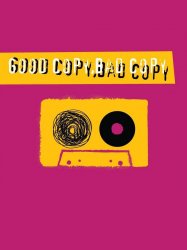Films with theme "Films about computing", sorted by revenue

8th Wonderland (2009)
, 1h45Directed by Nicolas Alberny, Jean Mach
Origin France
Genres Drama, Thriller
Themes Films about computing, Films about anarchism, Politique, Political films
Actors Robert William Bradford, Matthew Géczy, Eloissa Florez, Amanda Lear, Michael Hofland, Irina Ninova
Des millions de personnes disséminées de par le monde et déçues de la manière dont celui-ci évolue décident de s'unir. Toutes guidées par le même désir d'améliorer les choses, de ne plus subir l'actualité sans pouvoir réagir. Par le biais d'Internet, elles créent le premier Pays virtuel : 8th Wonderland. Chaque semaine, tous ses habitants votent par référendum une motion différente... Mais que se passerait-il si les motions de 8th Wonderland devenaient petit à petit plus réactionnaires ? Si sa manière d'agir se rapprochait lentement mais sûrement d'un comportement terroriste ? De nombreuses personnes et Nations pourraient chercher à faire disparaître ce pays qui n'est pas comme les autres. Une décision qui pourrait être complexe à mettre en œuvre, car ce pays n'est pas un territoire géographique ni une nation homogène.

Pixels (2010)
, 2minutesOrigin France
Genres Science fiction, Animation
Themes Films about computing, Jeu, Films about religion, Films set in the future, Films about extraterrestrial life, Films about video games, Political films, Dystopian films, Films about extraterrestrial life, Alien invasions in films, Disaster films
A man walks over to a trash can, puts a 1980s-era television by it, and leaves. A few seconds go by, then the TV turns on and shows colored bars. An 8-bit picture of a bomb shows up and the simulated fuse runs out, causing the TV screen to shatter, releasing a cloud of pixels (illustrated as voxels because of the three-dimensionality of the scene). The pixels fly over to New York City and head in various directions.

Plug & Pray (2010)
, 1h31Origin German
Genres Documentary
Themes Films about computing, Documentary films about technology, Robot films
Computer experts around the world strive towards the development of intelligent robots. Pioneers like Raymond Kurzweil and Hiroshi Ishiguro dream of fashioning intelligent machines that will equal their human creators. In this potential reality, man and machine merge as a single unity. Rejecting evolution's biological shackles tantalisingly dangles the promise of eternal life for those bold enough to seize it. But others, like Joseph Weizenbaum, counterattack against society's limitless faith in the redemptive powers of technology, questioning the prevailing discourses on new technologies and their ethical relationships to human life. The film delves into a world where computer technology, robotics, biology, neuroscience, and developmental psychology merge, and features roboticists in their laboratories in Japan, the USA, Italy and Germany.

BBS: The Documentary (2005)
Genres Documentary
Themes Films about computing, Documentary films about technology

Google Behind the Screen (2006)
, 47minutesThemes Films about computing, Documentary films about business, Documentary films about technology

The Net 2.0 (2006)
, 1h35Directed by Charles Winkler
Origin USA
Genres Drama, Thriller, Action, Adventure
Themes Films about computing
Actors Nikki DeLoach, Keegan Connor Tracy, Neil Hopkins, Şebnem Dönmez, Demet Akbağ, Charles Winkler
The movie opens with a scene of a young woman running from pursuers in the streets of Istanbul. She is captured and imprisoned, accused of various crimes, and questioned by a doctor. Desperate to save herself, she starts her story in a series of flashbacks.

Steal This Film (2006)
, 32minutesGenres Documentary
Themes Films about computing, Politique, Documentary films about technology, Political films
Steal This Film est une série de films documentant le mouvement contre la propriété intellectuelle. La première partie, produite en Suède et sortie en 2006, tient compte d'acteurs de la culture suédoise du piratage tels The Pirate Bay, Parti pirate suédois et Piratbyrån.
 , 1h30
, 1h30Origin USA
Genres Documentary
Themes Films about computing, Documentary films about technology, Films about video games
In the 1980s, video games were synonymous with arcades, and games were bringing in enough quarters to fill the Rose Bowl. This led Iowa entrepreneur Walter Day (with the support of various game manufacturers) to declare himself the sole authority on high scores. In 1982, Day launched his Twin Galaxies International Scoreboard. Teenage superstars came from all over North America to join Walter in a Life magazine feature spread, which recognized them as video game world champions. This led to the nationally televised 1982 Video Game World Championships, a touring National Video Game Team, and the promise of fame, fortune and groupies.

Good Copy Bad Copy (2007)
, 59minutesGenres Documentary
Themes Films about computing, Documentary films about business, Documentary films about the film industry, Documentary films about technology

Alone in the Dark 2 (2008)
, 1h27Origin USA
Genres Fantastic, Fantasy, Action, Horror
Themes Films about computing, Jeu, Films about video games, Films based on video games
Actors Rick Yune, Rachel Sarah Specter, Lance Henriksen, Bill Moseley, Ralf Moeller, Jason Connery
Former witch-hunter Abner Lundberg (Lance Henriksen) is forced to come back to fight his old nemesis, a century-old dangerous witch out on the prowl again. This time, Lundberg joins forces with Edward Carnby (Rick Yune), who attempt to track down the dangerous witch Elisabeth Dexter (Allison Lange).

Beyond the Game (2008)
, 1h15Genres Documentary
Themes Films about computing, Sports films, Documentary films about technology, Films about video games

Dead Space: Downfall (2008)
, 1h15Origin USA
Genres Science fiction, Thriller, Adventure, Horror, Animation
Themes Space adventure films, Films about computing, Jeu, Medical-themed films, Films set in the future, Zombie films, Films about video games, Films about viral outbreaks, Space opera, Films based on video games, Disaster films
Actors Nika Futterman, Jeff Bennett, Jim Cummings, Bruce Boxleitner, Hal Sparks, Phil Morris
An alien artifact, identified as a possible "second Marker", is discovered on the planet Aegis VII. The Church of Unitology uses its influence to send the mining ship USG Ishimura to retrieve this holy relic.

Google The Thinking Factory (2008)
, 52minutesOrigin USA
Themes Films about computing, Documentary films about business, Documentary films about technology

Hackers Are People Too (2008)
, 43minutesOrigin USA
Genres Documentary
Themes Films about computing, Documentary films about technology
 Connection
Connection
